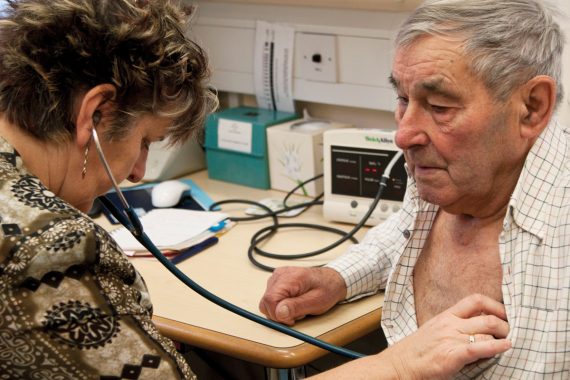General practice funding and GP numbers are associated with higher life expectancy of patients, research has found.
The research by University of Leicester looked at the life expectancy of general practice populations in England, both male and female, in the period immediately before the pandemic (2015-19).
It concluded that patients live longer when they had access to fully qualified GPs, continuity of care and there is higher funding of general practices. And the paper described it as ‘worrying’ that these features of general practice were currently in decline across England, while different approaches to access were also being developed and new groups of staff joining the workforce.
Professor Richard Baker, who led the research, said that the findings should ‘trigger concern about the effect of the current general practice crisis on population health in England’.
‘In recent years, both the number of fully qualified GPs and continuity of care have been declining, and general practices are struggling to meet the demands for care of an aging population. Reversing these declines would not only improve access to care but also might improve life expectancy,’ he said.
The research, published in the British Journal of General Practice (BJGP), investigated factors such as numbers of fully qualified GPs, GPs in training, nurses and advanced nurse practitioners (ANPs) per 1,000 patients. It also looked at funding per patient, and continuity and access.
In addition, the study accounted for characteristics of patient populations including ethnicity, deprivation, and NHS region.
As expected, it found a strong link between deprivation and region and lower life expectancy. Regions outside London and white ethnicity were also associated with lower life expectancy.
Greater funding was associated with higher life expectancy and more numbers of fully qualified FTE GPs also predicted higher life expectancy. However, numbers of GP registrars, ANPs, and receptionists did not.
The research highlighted that although life expectancy at birth in England increased throughout the 20th century, improvement has now stalled.
And while similar slowdowns have occurred in comparable countries, the UK has fallen down the global rankings.
The slowdowns pre-date the pandemic, and the explanation is not fully established.
Professor Baker said that while there were several factors which could explain the slowdown, such as socio-economic inequalities, ‘the possibility that the pressure on general practice may be contributing should now be considered as well’.
He added: ‘While this study cannot prove causation, the findings are consistent with international evidence about the mechanisms of primary care that affect life expectancy, and should trigger concern about the effect of the current general practice crisis on population health in England.”
The findings indicated which features of general practice should be considered in future policy developments, the paper said.
Priority should be given to ‘increasing the numbers of fully qualified GPs, increasing general practice funding per patient, and improving continuity and access’ said Professor Baker.
It comes as a separate study found patients with COPD, diabetes and heart failure who see a regular named GP for their condition have lower rates of mortality than those who do not.
A version of this story was first published by Pulse’s sister title Management in Practice









Saddened that there is no “bears sh1t in the woods” comment to this by now……. Clearly all the best readers are busy supervising and debriefing others.